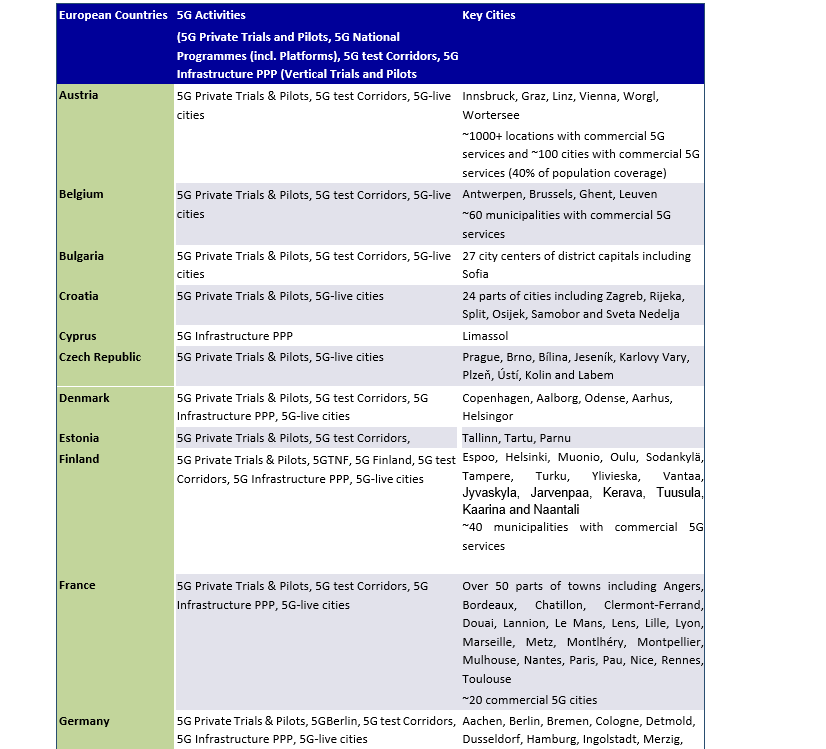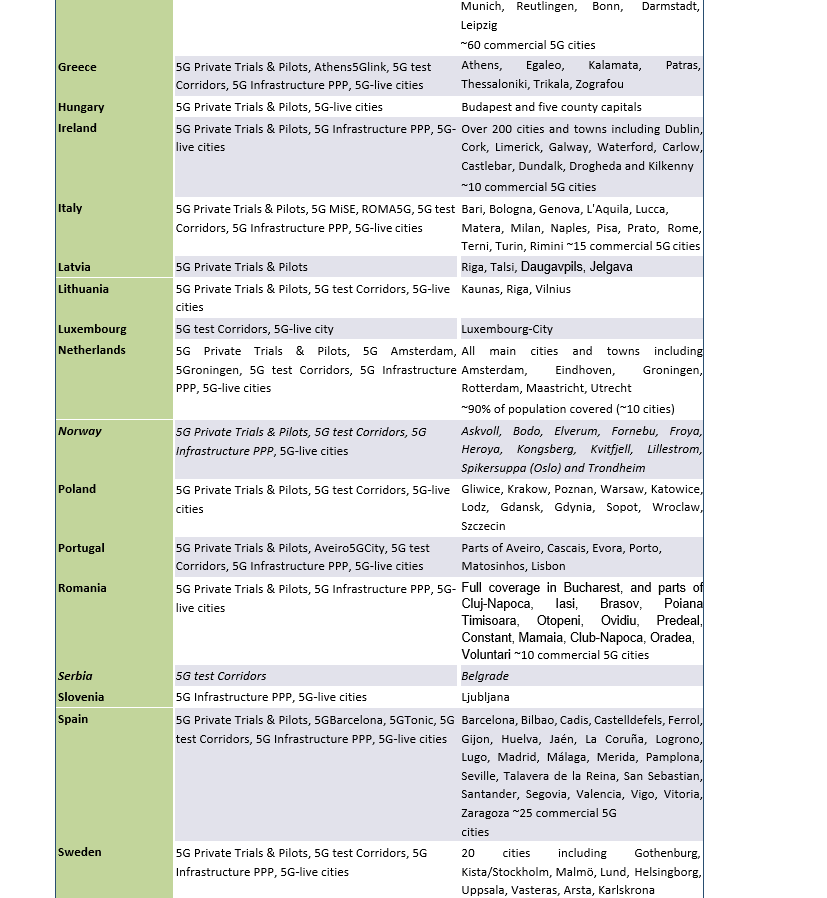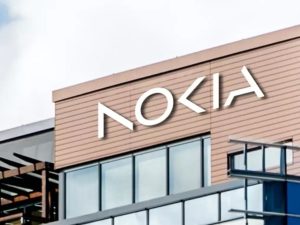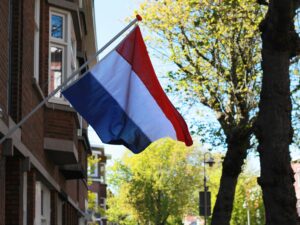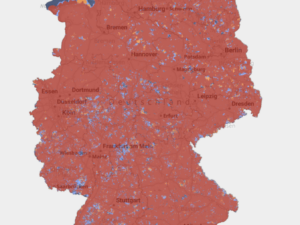The European Commission’s action plan of September 2016 confirmed by the EU Council in December 2017 targets the commercial rollout of 5G in at least one major city in every MS by the end of 2020.
Specific cities in Europe announced their plans to become 5G Trial Cities, at the forefront of 5G trials and pilots. At the end of 2017, seventeen Trial Cities had been announced: Amsterdam, Barcelona, Bari, Berlin, Espoo, L’Aquila, London, Madrid, Malaga, Matera, Milan, Oulu, Patras, Prato, Stockholm, Tallinn and Turin. In France, nine major regional cities were selected for 5G trials (Bordeaux, Nantes, Grenoble, Douai, Le Havre, Saint-Etienne, Lille, Montpellier and Lyon) in 2018. Tests took place and are still taking place in other cities (including Belfort, Le Vaudreuil/Rouen, Lannion/Rennes Marseille, Nantes, Nice/Sophia-Antipolis, Saint Etienne and Toulouse) alongside with eleven cities in Paris’s suburbs (including Paris, Châtillon, Linas-Monthléry and Saclay). As at August 2018, three additional cities committed themselves to the target: Aveiro, Bristol and Ghent. A non-exhaustive list of 5G Trials Cities include Amsterdam, Aveiro, Barcelona, Bari, Berlin, Bristol, Espoo, Ghent, L’Aquila, London, Madrid, Malaga, Matera, Milan, Oulu, Patras, Prato, Stockholm, Tallinn and Turin.
These trial cities aim to provide support for a variety of technology and service demonstrations carried out during the 5G trialling phase and provide valuable vertical use cases, especially for Smart City concept to validate the trials in real user environments. When compared to the private sector, public entities such as cities usually have different interests even in similar use cases focusing e.g. on eHealth, energy, transport, smart buildings, or digital service portals. In all of these domains, shared technology platforms, free access, open data and interfaces as well as the maximal involvement of local ecosystems and residents are common priorities.







